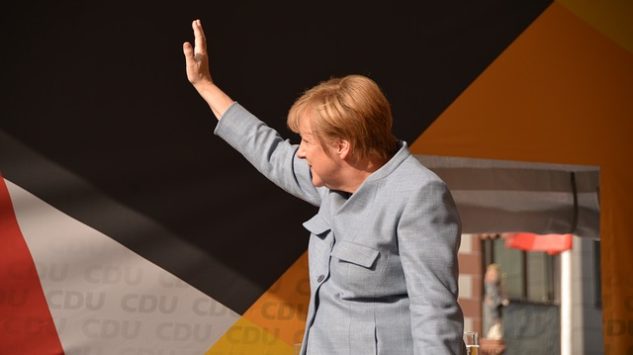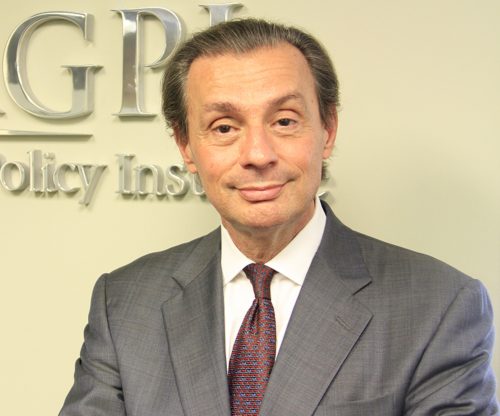Issue Briefs

Wobbly Germany In Wobbly Europe
Paolo von Schirach
October 24th, 2021
WASHINGTON – The inconclusive outcome of the recent German political elections does not move the needle of Germany’s probable future directions by much. Under the long reign of Chancellor Angela Merkel Germany was wobbly and unable (in fact unwilling) to define and take a clear stand on its (and Europe’s) national security interests. After these elections, with Merkel now gone for good, expect no major changes. If the German Social Democrats (in the lead, although by a tiny margin) manage to form a coalition with the Greens and the Liberal Democrats, (this is the most likely scenario), oddly enough expect more of the same.
Not much change
In foreign policy, just like the Merkel-led coalition, the new left of center coalition government will focus on managing relations with Washington with generic talk on unity followed by no meaningful action. Expect continuing ambiguity on Russia, a very low profile on China relations, and no serious efforts to boost German defense spending in a robust way. This was essentially Merkel’s low profile, “pragmatic”foreign policy.
The hard truth is that Germany, because of its semi-neutral proclivities, widely shared across all its political parties, is hopelessly unable to lead an equally timid and risk averse Europe. Forget about joining forces with French President Macron and his call to arms in the form of creating a EU credible defense apparatus.
Sure, with Germany’s concurrence, we can expect more talks in Paris and Berlin, and new ad hoc committees in Brussels reviewing issues and options on the value and viability of an independent European defense effort. But it will be only talk. Europe as a whole is unwilling to seriously discuss, let alone act upon, what to do about any current or future security threats. Along the same lines, the new German coalition government will continue to wobble and equivocate, following the fantasy that if Europe just talks peace, stays quiet, and engages in trade with everybody, all will be well.
Focus on the green agenda
On domestic policy issues, a German center-left government will continue to focus on the existing ill-conceived, super expensive green agenda. In practice this means more generous subsidies for as yet immature renewable energy technologies whose only tangible outcome so far has been very high electricity prices, without any meaningful gains in terms of reduced emissions, let alone making any difference whatsoever when it comes to rising global temperatures. Looking at technological innovation, under Angela Merkel Germany failed to invest in state of the art technologies and seriously pursue a digitization plan that would help the country be better prepared to face future global competitors. I do not think that a new government coalition made out of political parties focused on social justice rather than competitiveness will be able to do much better on this most critical front.
Macron’s new thinking on European security
Shifting focus on France, facing an uncertain re-elections campaign in 2022, French president Emmanuel Macron now wants to carve for himself a niche as the leader on new directions for a sound European Union-driven (as opposed to NATO-driven) security strategy. But he leads only in grandiose visions. France does not have either the money or they staying power, let alone the necessary followers, to lead Europe in the pursuit of this most ambitious effort. At first glance, whatever Macron would like to propose, without a full German endorsement and concurrence in terms of real funds redirected to defense spending, whatever he says regarding European defense will be just empty posturing. And he should know by now that Germany’s ideal security policy is to bury its head deeper into the sand.
NATO is weak
NATO was created in 1949 to deter what seemed at the time probable Soviet aggression, or at the very least undue political pressures on semi-destroyed, anemic Western European countries. Strangely enough, while the Soviet Union imploded and disappeared many years ago, NATO is still alive. In fact, it has gotten much bigger, having accepted years ago former Soviet satellite countries, and some former Soviet Republics, as new members.
However, while considerably larger, NATO is much weaker militarily. Not much there in terms of combat ready units that could be immediately mobilized to face any surprise attack. Not much there in terms of expeditionary forces and the related airlift capacity that could quickly and credibly dispatch such forces where needed. True enough, NATO continues to have a valuable function as the tried and tested forum for transatlantic security exchanges. But, again, the focus is mostly on talk. With very few exceptions, for most NATO countries defense spending and therefore serious military preparedness is a very low priority.
Put it simply, through their actions the European members of NATO already years ago indicated that they do not believe that there is any significant threat confronting the Old Continent. They see Russia as an uncomfortable nuisance that however can and will be managed. With some tweaks here and there, business as usual with Moscow is fine, witness the open or tacit acceptance to continue to rely on critical energy supplies from Russia on a massive scale. There is no meaningful opposition within Europe to the almost completed Nord Stream 2 gas pipeline linking Russia to Germany.
China is not Europe’s problem
Broader global strategic threats, namely the worrisome rise of a much more assertive if not openly aggressive China, appear too distant and vague to most Europeans to require the beefing up of European defenses, or other forms of self-protection, including diminishing the EU reliance on made in China imports . Given this, there is no way that NATO can become a credible pillar of any Washington-led robust anti-China coalition. Whatever they may say in public, the Europeans want no part in any of this.
The Australian purchase of American nuclear powered submarines issue hit France where it really hurts, in the pocketbook. Sure enough, the deal announcement was handled horribly by Washington. And there is no plausible excuse for the embarrassing miscommunication resulting in a huge diplomatic debacle. The White House failed to inform the French government about its advanced negotiations with the Australians in order to sell to Canberra US made nuclear powered submarines, undoubtedly a far superior product than the diesel-electric submarines that France was going to make for the Australian navy. This lack of communications turned into a public relations disaster that required Biden’s apologies to Macron followed by promises to be open and transparent in the future. However, if we look at the substance of the announced deal, it shows that, unlike most Europeans, the Australians take the security threat posed by China very seriously. That is why the want to buy very capable nuclear powered submarines that will be able to sail undetected for months.
Europe was and will continue to be weak on defense
All in all, after the German elections and notwithstanding Macron’s calls to arms, the simple truth is that Europe was not and is not really interested in creating a strong military deterrent, because it wants to believe that it is unnecessary. Likewise, Europe wants to believe that it can have and keep a low profile in the emerging global confrontation between the US and China which would require new trade and investment policies (away from China) beyond additional military spending. Within the European Union, the French emphasis is in regaining European sovereignty when it comes to security policies. The need for a new course is justified by citing US unilateralism and unreliability, (witness lack of consultations regarding the Afghanistan withdrawal and the Australian submarine deal). Great. But EU military independence to do what? Preciously little; simply because virtually no one in Europe sees any need to get really busy, so that future aggression or threats can be met by a robust Europe-led deterrent that would give credibility to otherwise empty policy pronouncements.
Macron, facing an uncertain re-election battle in the Spring of 2022, desperately needs to look strong and presidential. Still, in the end, either NATO-led or EU-led, (the latter option is only a distant dream), Europe will remain a weak group of relatively rich countries whose main defense strategy is to hope that nothing bad will happen.
The views and opinions expressed in this issue brief are those of the author.
 |
Paolo von Schirach is the President of the Global Policy Institute, a Washington DC think tank, and Chair of Political Science and International Relations at Bay Atlantic University, also in Washington, DC. He is also the Editor of the Schirach Report. |